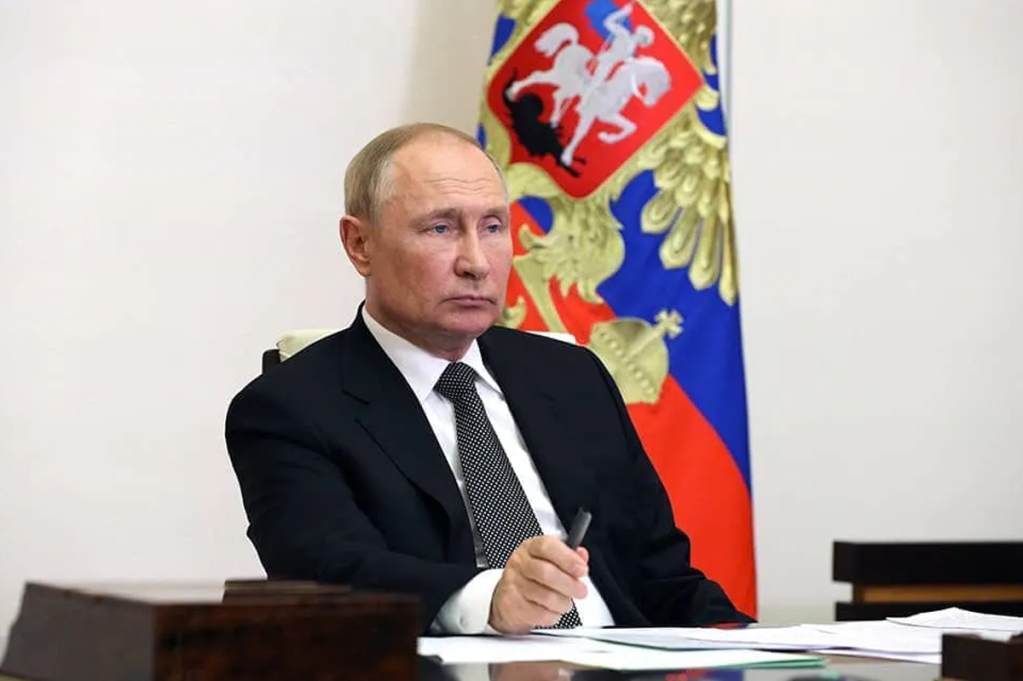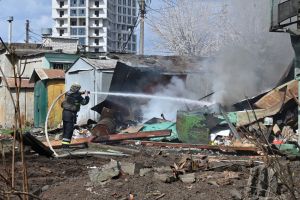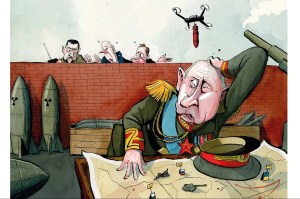The Ukraine war’s first seven months have been a long slog, with high costs in both men and material. Then, over the last week of combat, that suddenly changed. While casualties undoubtedly remained high on both sides, the Ukrainian army’s surprise counteroffensive in the northeast shattered Russia’s defensive lines and culminated in the most humiliating Russian tactical defeat since its forces were pushed out of Kyiv in April.
While Russian President Vladimir Putin was celebrating the opening of a new Ferris wheel in Moscow, his troops 534 miles to the south were dropping their weapons and retreating. According to General Valerii Zuluzhnyy, the commander of the Ukrainian army, Kyiv has captured 1,160 square miles since the beginning of the month, taking the city of Izium, which the Russians have used as their main support base for the operation in the Donbas. If public reports are accurate, the Ukrainians recaptured another twenty settlements over the next twenty-four hours, reaching the state border with Russia. The sudden advance south of Kharkiv comes at the same time that Ukrainian troops are pressing a slower but no less important offensive in the Kherson region, an operation consisting of relentless strikes on bridges used by Russian units to re-supply the roughly 25,000 troops on the other side of the Dnipro River.
Just as significant as the latest developments in the field are what they mean for Putin’s political position — or, more accurately, what they say about Putin’s propensity to embellish and create an alternate universe of make-believe for his people. Just days earlier, Putin insisted with the self-confidence of a narcissist that Russia will emerge stronger after the war. “I’m sure we have not lost anything and will not lose anything,” he told an economic conference in Vladivostok on September 7.
The problem with alternate realities is that they easily fall apart when things don’t go your way. Ukraine’s successful counteroffensive in the northeast is as much of an indictment of Russian military incompetence as it is Putin’s chops as a strategist. Notwithstanding earlier myths that the Russian president was a strategic genius of epic proportions, Putin has exposed himself to be an out-of-touch, bumbling fool who believes his own fictions, oversteps, overestimates his country’s power, and underestimates the capacity of his adversaries. Even the Kremlin’s biggest hawks are starting to take notice that something smells rotten at the top.
Protestations that the Russian army’s latest disaster in Ukraine could be the beginning of the end for Putin’s twenty-two-year reign are much too optimistic. But the tone has shifted somewhat — and those who are normally willing to trumpet the Kremlin’s talking points with gusto are now criticizing it. Thus far, the criticism has been leveled at Russia’s military leadership, particularly the defense ministry, and not at Putin himself. Even Ramzan Kadyrov, the autocrat of Chechnya and Putin acolyte who has sent thousands of Chechen soldiers to war on Russia’s behalf, is disgusted by the Russian military’s performance. “Unless there are changes in the strategy for conducting the special military operation today or tomorrow, I will have to go to the leadership of the defense ministry, to the country’s leadership to explain the real situation on the ground,” Kadyrov wrote on his Telegram channel. There is a sense that, if these embarrassments keep piling up, heads in the Russian high command will roll. Senior Russian intelligence officers were reportedly reprimanded for their botched assessments earlier in the war.
As far as one can tell from the outside, Putin’s political position remains secure. The man has gutted civil society, independent media and any sense of real Russian political opposition. The airwaves are dominated by pro-Kremlin sycophants and opportunists; those who protest Russia’s military actions are quickly arrested and prosecuted. Just uttering the word “war” to describe the so-called “special military operation” can land you a hefty prison sentence. It’s thus not at all surprising that the Russian population is largely apathetic to what’s occurring in Ukraine. Asked by the Levada Center in July if they were following the situation in Ukraine, only 25 percent said they were doing so “very closely.”
Apathy within the Russian body politic is exactly what Putin hopes to maintain. He has committed himself to ensuring the Russian people don’t suffer from a war he has chosen to fight, and an integral part of this strategy is doing everything he can to avoid instituting a draft. This means relying on contract soldiers, forcefully enlisting fighting-age men in the Russian-occupied territories, tapping into the Wagner mercenary group, and scouring Russia’s prisons for men desperate enough to trade a long sentence with the possibility of death in Ukraine.
But there may come a point when Putin has to reassess this strategy, admit a war is actually happening, and mobilize Russian society. Pro-war Russian bloggers have been opining for a mass mobilization for weeks, and the weekend’s tactical defeat will only amplify those calls.
What’s more important to Putin? Eking out something that can be called a success in Ukraine? Or preventing the domestic turbulence that would result from a national mobilization? We may soon find out.


















